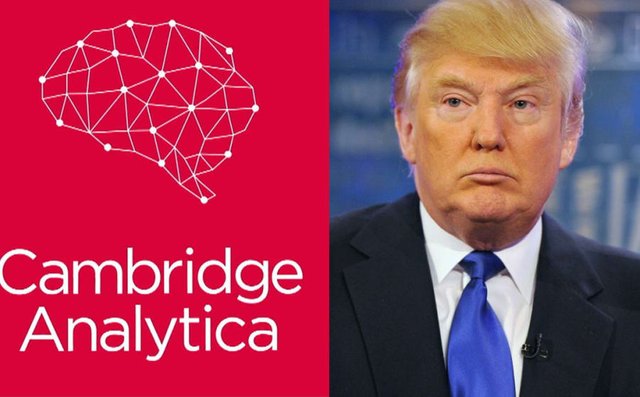Complaints about misuse of information by Facebook customers against Trump's campaign camp

Cambridge Analykt (left) and Donald Trump (right) in the election campaign of Trump. Photo: Collected
(Priyo.com) United States political and military data analyst Cambridge Analyktan has alleged that 50 million Facebook user's personal information is illegally used. The company was involved in the election campaign of US President Donald Trump. Many analysts believe that it had a major role in the triumph victory. Not only this, the organization was behind the referendum following the departure of Britain from the European Union (EU).
The news of the influential American press has been published in the New York Times on Saturday. Since then, the matter has begun to arise.
The Massachusetts State Attorney General has already started an investigation into the incident. On the other hand, Facebook has banned two organizations called Cambridge Analytics and Strategic Communication Alliance (SCL) from their platform for accusations of betrayal.
Facebook and Cambridge Analyst have denied their liability in this incident. The last member of the board of directors was Trump's former chief policymaker and close associate Steve Bennon.
How to steal the customer's information
The name of the company is 'Cambridge Analytics' but it has nothing to do with the University of Cambridge. Professor Alexander Cognon of the Department of Psychology at the University of Cambridge, is at the core of this huge collection of information. He made an application called 'This Is Your Digital Life' in 2015, by clicking on which the user can know about his personality.
Facebook had to login to the app. The user had to login to the app with the access to the information, the type of post he liked.
Despite allegations against Kogan that he used to use these information for the study of psychology, he used the app to understand the mentality of the US voters. Later he analyzed the information available from users. According to agreement with Facebook, personal information collected by the customer through such an application is to be deleted immediately. But Professor Cogan did not delete them, and sold them to the third party before the US elections. He bought these personal information from the customers, a member of Kembridge analytics, Strategic Communication Alliance and the Unani Technologies.
Facebook's Deputy Legal Consultant Paul Griwal said in a blog post on Saturday 17 March, "Although the rules and regulations of Facebook for such an application were made at that time, Professor Cogan received the access to all those information about those rules. But he did not follow the rules properly. '
Facebook's directives to such type of app maker were to delete customer's personal information immediately. But Griwal said, "We have learned a few days ago that some of us did not accept this directive and did not completely delete the customer's personal information.
We (Facebook) have been very vigorously picking such complaints. If the allegations prove to be true, then it will be completely unacceptable and betrayal of us.
However, Cambridge Analyst denied the allegations made against them. In a statement, the company said that after disclosing the information that customers have collected personal information in violation of Facebook rules, they have completely deleted all the personal information of the customer. There is no information available from Professor Kogan in the 2016 US presidential election.
Cambridge University in the United Kingdom said in a statement that there is no evidence that Professor Cogan used any of the university's opportunities to collect personal information of the customer.
A university spokesman told the media that professors can do their own business outside their professional work. There is no restriction on this from the university.
The BBC, the New York Times, and several media outlets have not succeeded in trying to contact Professor Kogan on the matter.
Dear News / Azhar
@originalworkas